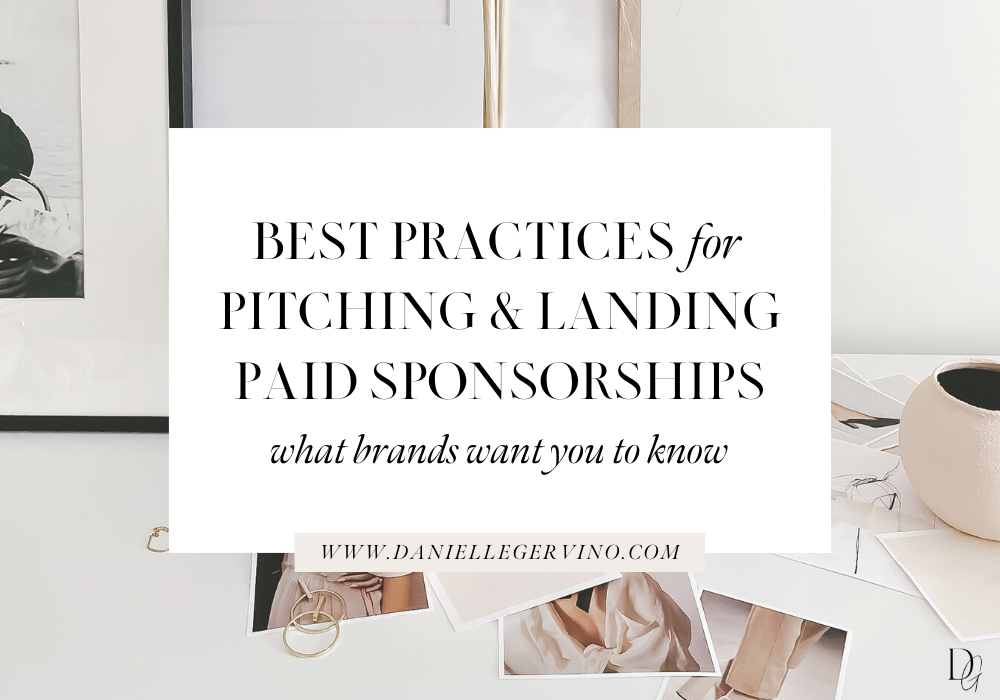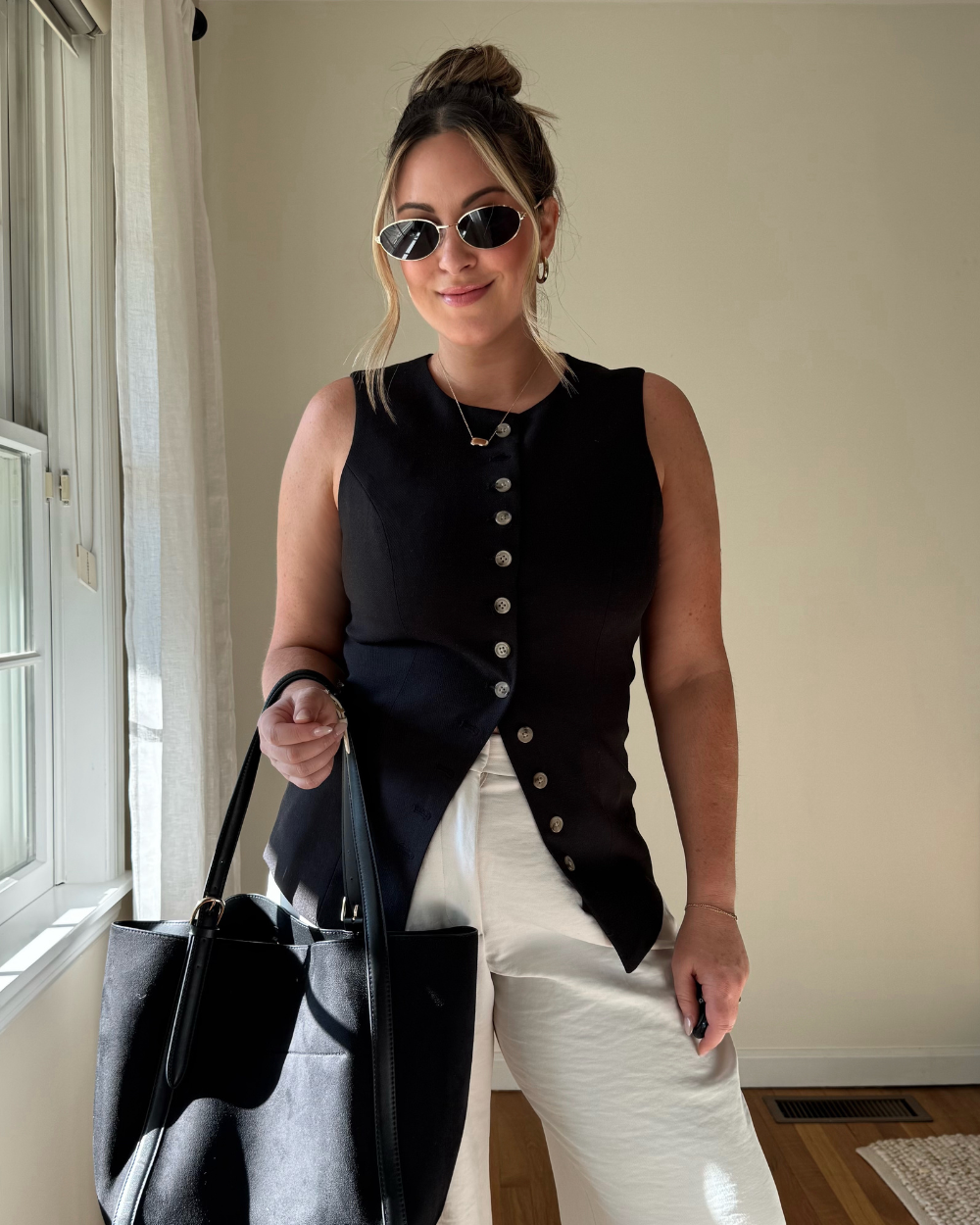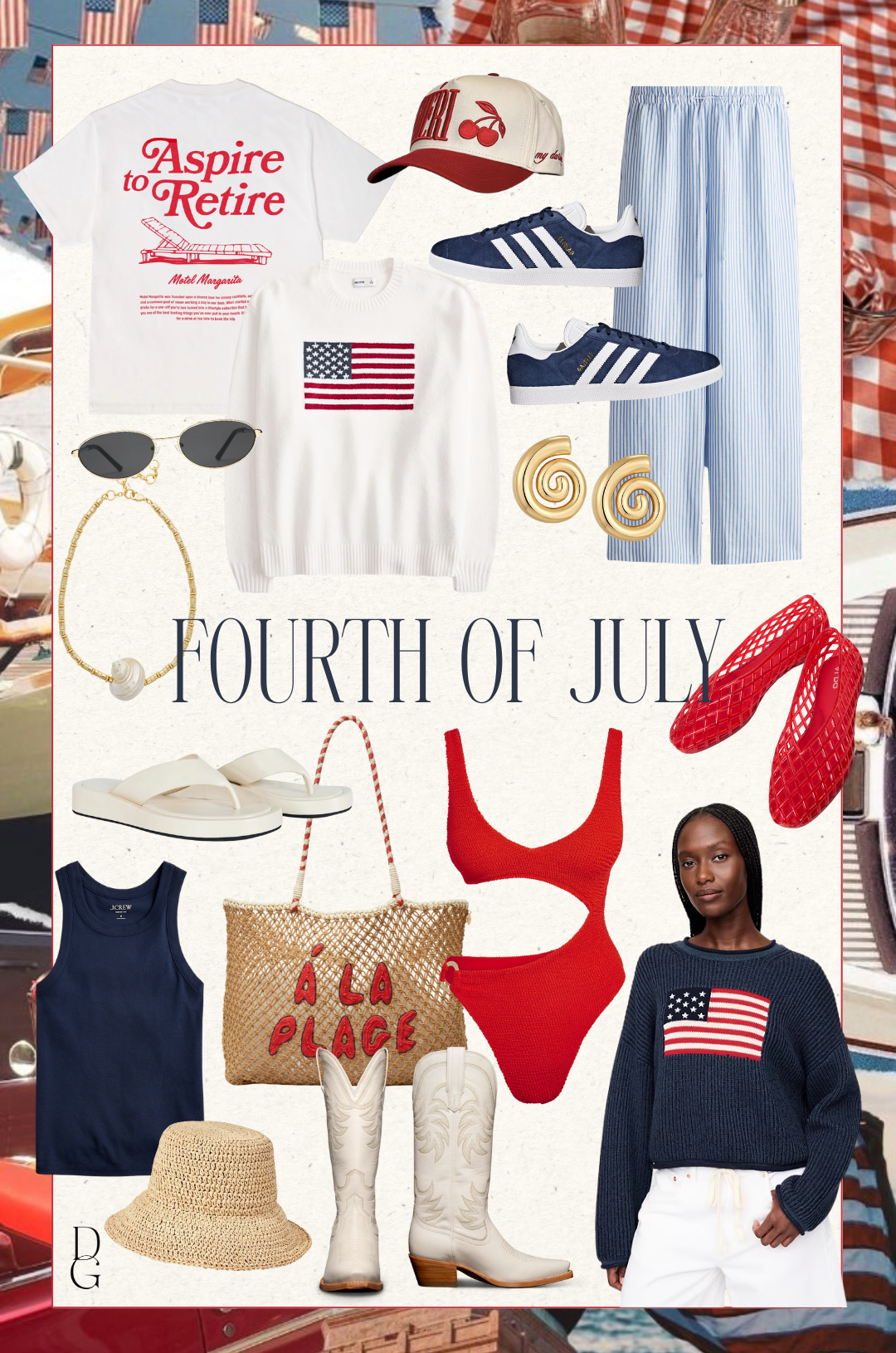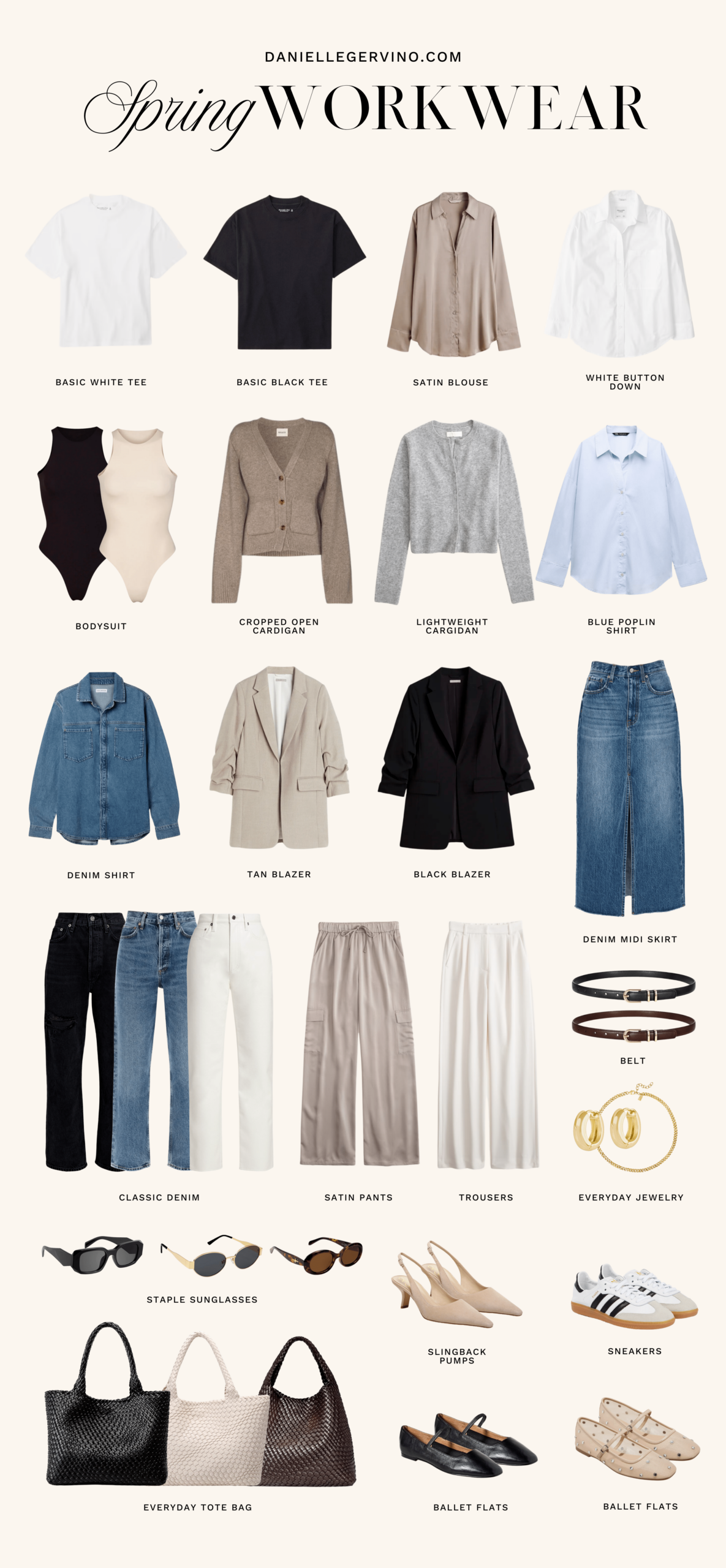How to Pitch & Land Paid Partnerships, According to 3 Brand Experts
Paid partnerships are the infinitely elusive feat bloggers and content creators are continuously chasing. I mean, getting paid for our work and the content we create is how we define success, no? But here's the thing... pitching and landing a paid partnership isn't as easy as sending a clever e-mail. pitching & landing sponsorships
There's so much more that goes on behind the scenes on the brand side that we don't have access to.
How do brands find and vet the bloggers they want to work with? How can I stand out? What's something that will get your attention in my initial pitch? How can I set myself up for long-term success with your brand?
Today, we're answering all of those questions and then some, thanks to the help of 3 awesome women on the brand side who are sharing their expertise with us. pitching & landing sponsorships
Lauren (@lifestylesbylauren) is a Social Media Manager at NAADAM, Sarah (name changed for privacy) is an Associate Director of Influencer Marketing on the agency side, and Lissy (@soflobranding) is the owner of the South Florida-based Marketing Agency SoFlo Branding. pitching & landing sponsorships pitching & landing sponsorships pitching & landing sponsorships
What brands look for in an influencer partner
How do brands find the influencers they want to work with?
Lauren - So many ways! I do a lot of “research” via Instagram and finding bloggers who have an engaged audience and post relevant content. We also use Fohr to search for influencers and get more information on their stats and engagement.
Sarah - Working on behalf of the brand, we'll send over a list of influencers (pre-vetted by me or someone on my team) for the brand to make selections from. Typically, we'll send over double the number of influencers they are looking to recruit for the campaign so they have options to choose from, and when we go to negotiate we have some wiggle room.
Lissy - A lot is network connection; have we met this influencer, does their personality align with the brand voice, do we like the content they produce organically, do they actually know this product/brand or can they get to know them and actually like them? But another way we find partners are from bloggers reaching out. We get a lot of bloggers just naturally engaging with the brand across their social platforms and that shows us that they actually have a genuine interest in the brand and they’re not just looking for any brand to partner with.
In general, what do you look for in an influencer you're partnering with
Lauren - Someone who is authentic, has an engaged audience, is genuinely interested in our clothing, and has a great aesthetic and personal style.
Sarah - So on a higher level, we keep track of ALL of the influencers we work with across all of our clients and have notes on what it was like to work with that influencer (are they timely in their responses, did they go MIA when content was due, are they frequently late to turn things in, do they always go above and beyond, etc.) that we factor in to every decision. On a more campaign by campaign, brand to brand level, the most important things we look at are if the influencer's brand and values matches the values of our client, do they engage with their communities (respond to comments, interact with their audience on stories, etc.), are they authentic (one of the things we look at here is the ratio of organic content vs. sponsored content to ensure that an entire feed, blog, etc. isn't all sponsored content and our client won't get lost), and budget always ends up playing a factor as well.
Lissy - My favorite thing to look for in influencers is how they engage with their audience. The response they get organically from the followers they have says a lot more to me than the number of followers. I also like to look at how frequently they do ads. If most of their posts are paid, this person comes off as disingenuous.
What warrants an immediate "no" response to partnering with an influencer?
Sarah - Purchased audience (pretty easy to spot based on analytics and engagement), every single post is sponsored, history of unprofessionalism in past campaigns.
Lissy - To me it’s not delivering on past work. Our agency works with a few brands and if you’re the perfect fit for many of them but you didn’t deliver on the first brand I sent you to work with - or you did but the work was lackluster or late - that’s a huge no no for us. We see this a lot when it’s not a paid ad but an exchange for product. The free partnership is almost like a test to see if you’re ready for a paid partnership or an affiliate.
What can I do to make myself as marketable as possible?
Lauren - When you reach out to a brand, I definitely recommend catering your pitch to them. I can’t tell you the number of times I receive a pitch saying, “I’d love to work with your brand” without even specifying why or naming our specific brand at all. Also, include examples of how your audience is interacting with content and any past successful partnerships if you can.
Sarah - Treat your communication with brands, agencies, etc. as you would communication in a "regular" job i.e. get back to them in a reasonable amount of time, communicate expectations if something is going to be late, etc.
Lissy - Your character is everything. It’s what sets you apart so let that shine through everything, even on paper.
What character qualities or skills define someone you would want to work with more than once?
Lauren - It’s always nice to have someone who answers in a timely manner and also closely follows a brief. Anyone who drives sales is also a bonus 🙂
Sarah - Great communication, is reasonably flexible if something arises, friendly & professional, brings new and unique ideas to the table.
Lissy - Timeliness and quality of work. I also think it says a lot when an influencer takes the time to thank you and ask what they can do to improve in future campaigns, even if they delivered perfectly. It shows me they want to grow not just an audience, but as a professional.
Does a blogger who is active on a brand's social media channels affect your decision to work with them?
Lauren - I love seeing pitches when someone has been engaging with us and tagging us for a while and I can recognize their name. It definitely catches my attention.
Sarah - It never hurts, sometimes the client will have a strong preference towards a particular influencer and that can stem from them engaging with the brands' social, having reached out previously, basically anything that shows a true affinity for the brand.
Lissy - Absolutely!
Pitch Emails & Media Kits
What does the perfect initial pitch email look like to you?
Lauren - I love when people introduce themselves in a line or two, share info about their audience/stats briefly, and explain WHY they want to partner and how it can be mutually beneficial.
Sarah - A genuine explanation of why you want to work with the brand/why you feel you'd make a good partner for the brand (a vast majority many come through with a generic "I love xyz brand!" and that never stands out) and perhaps a quick snapshot of an idea you have or simply just stating that you have some great ideas on how you'd integrate the brand into your content and set up a time to speak. Personally, I love when people offer to get on a quick call and find that the personal touch and connection often leads to the most successful long-term partnerships.
Lissy - Plain and simple: they know and like the brand (it’s not a blanket pitch) and they’re not set on ONE thing like a dollar amount in exchange for them producing a video; they can be open to what the brand has going on at the moment/in the future.
Are there any things I should leave out of a pitch email (ie: what not to say)?
Lauren - I probably wouldn’t ask the brand for specific product to send over in the initial pitch email. It’s best to build up your relationship first.
Sarah - This is going to likely be the opposite of what most people say from the brand side but looking out for you guys, don't give you rates in an initial pitch as it'll lock you in when there could have been the possibility for more money for you.
Lissy - Please make sure you proofread and you have the correct brand name and information! You may be laughing but it does happen!
Do you prefer a more specific and thought-out pitch, or would you rather it be kept more general?
Lauren - Open to either! When someone has a specific concept around something going on in their lives, it shows how they thought about integrating our product into their upcoming trip, event, etc.
Sarah - Definitely more specific and thought out if for a particular campaign but don't think it's needed upon initial outreach.
Lissy - I love hearing ideas! But I also respect their flexibility to fit better with the brand’s current campaign
What will make you open to my pitch? Are there any particular subject lines you look for that stand out?
Lauren - A subject line that has the right brand name 🙂 you’d be surprised at how many generic pitches or pitches with the wrong brand name we get.
Lissy - Make it fun! Emails are boring; I want something to catch my eye. Important: Your first sentence in the email should also make me want to keep reading.
What do you look for in a media kit and how much does follower count matter?
Lauren - I love seeing past partnerships and “case studies” if possible. A lot of times, higher-ups will want to know how people convert. I look more at engagement rate and quality content than follower count.
Sarah - Show your worth (include a case study if you have one), follower count will always matter to SOME brands but as long as you can show your value often times we can convince brands to work with someone with a lower following but that genuinely has a community and not just followers.
Lissy - Some brands care more than others. It’s all about engagement rate & reach for me.
What qualities sets a micro-influencer apart in a pitch?
Lauren - We love working with micro-influencers who have strong content. A lot of times, I pay more attention to the quality of their images and content as opposed to the follower count.
Sarah - Communication, professionalism, creativity.
How long should I wait to send a follow-up email if you haven't responded to my pitch?
Sarah -A week and in your follow-up ask if there is a better way to reach you or a preferred time to chat
Lissy - About a week or so.
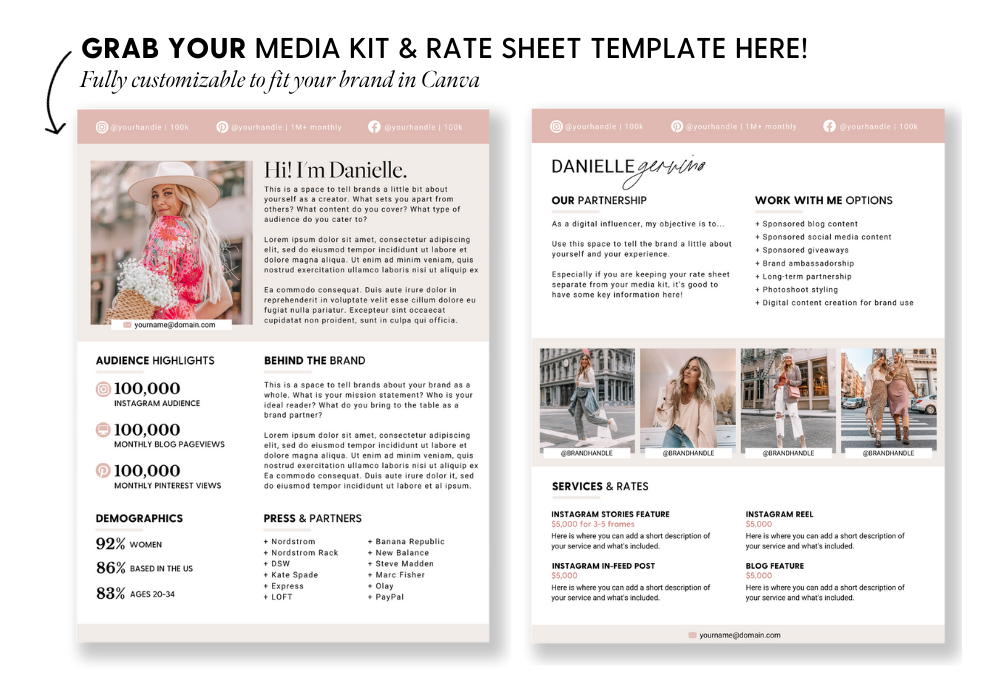
Negotiation & Compensation
What is the typical pay for a micro-influencer?
Lauren - I’ve seen SUCH a range especially in the past year. There really isn’t a formula anymore.
Sarah - Will 100% depend on the brands budget/what they consider "micro". I've found that some brands with consider anyone under 10k a micro-influencer while others consider a micro-influencer anyone under 500k micro.
Does your brand have a "standard" rate for bloggers you work with?
Lauren - Nope. We are open to hearing rates and change this always varies depending on several factors.
Are brands typically open to negotiations? How does a blogger coming back to your initial offer with a higher rate come across?
Lauren - We are open to hearing negotiations from influencers. If they have a reason (ex: turnaround, as usage) for asking for a higher rate, then I definitely respect that.
Sarah - Always negotiate but do so in a timely manner...often times, we have 24-48 hours for recruitment and have 100s of influencers we are in communication with for a campaign with 10 influencers so if you take too long to get back to us, we won't be able to include you (I know this may not be the case with everyone but at my agency we are more often than not pressed for time when recruiting). But also more often than not have flexibility in our budget so always negotiate but be willing to walk away if your rate is not met.
Lissy - Most brands are usually open to negotiating rates because there’s not really a standard or a regulation on influencer salaries. If you were offered a rate and you want a huge bump off the original offer, it will likely warrant you a no unless you can really justify why you’re worth working with and how you’ll produce an ROI for the brand.
More information on Media Kits, Rates, Pitching and Negotiation can be found in our 3-part Blogging, Unscripted Podcast episode, starting with Episode 5 (anywhere you listen to podcasts).
